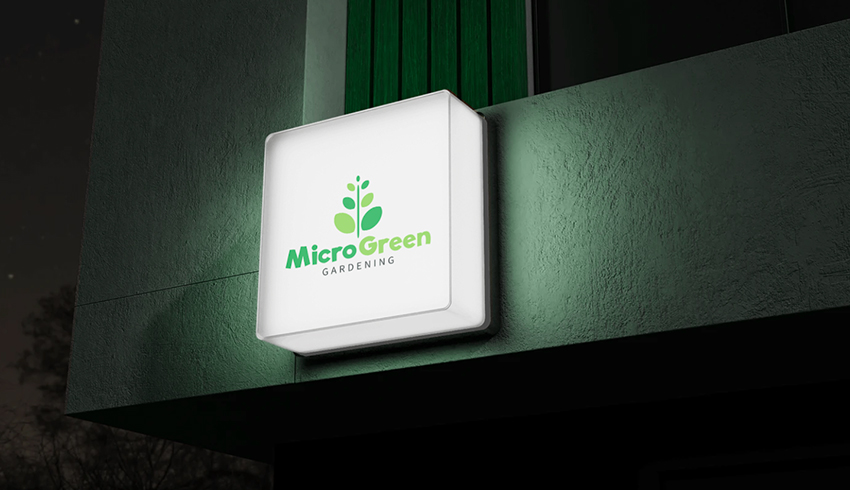In the ever-evolving landscape of work, freelancing has emerged as a viable and rewarding option for many. With the flexibility to define your own schedule, choose your projects, and work from anywhere, freelancing offers a lifestyle that appeals to a wide range of professionals. If you're considering taking the plunge into freelancing in 2024, you're in the right place. In this comprehensive guide, we'll walk you through the steps to embark on your freelancing journey and reap the benefits of this dynamic career path.
Benefits of Being a Freelancer
Before we dive into the nitty-gritty of how to become a freelancer, let's explore some of the key benefits that come with this lifestyle:
- Flexibility: As a freelancer, you have the freedom to set your own schedule and work from anywhere in the world. Whether you're a night owl or an early bird, you can tailor your work hours to suit your preferences.
- Independence: Say goodbye to micromanagement and office politics. As a freelancer, you're your own boss, allowing you to make decisions autonomously and take full control of your career.
- Variety: Freelancing offers the opportunity to work on a diverse range of projects with different clients. This variety not only keeps things interesting but also allows you to continually expand your skills and expertise.
- Earning Potential: While freelancing comes with its own set of challenges, it also presents significant earning potential. With the ability to set your own rates and take on multiple projects simultaneously, you can increase your income compared to traditional employment.

How To Become a Freelancer in 2024
Now that we've covered the enticing benefits of freelancing, let's delve into the practical steps you need to take to kickstart your freelance career in 2024.
Define Your Niche
The first step in becoming a successful freelancer is to define your service offering. What skills do you possess? What services can you provide to clients? Take the time to assess your strengths, expertise, and areas of passion or interest. Consider the specific problems or pain points you can solve for clients and the unique value proposition you bring to the table. For example, if you're a graphic designer, you might specialize in branding and logo design for small businesses, helping them establish a cohesive visual identity that resonates with their target audience. If you're a writer, you could focus on content marketing and storytelling, crafting compelling narratives that drive engagement and conversions for your clients' brands.
Once you've identified your core competencies and target market, refine your service offering to align with the needs and preferences of your ideal clients. This may involve narrowing down your focus to a specific niche or industry where you can position yourself as an expert. By niching down, you can differentiate yourself from the competition, command higher rates, and attract clients who value your specialized skills and knowledge.
Make your own logo in seconds!
Try It NowMake your own logo in seconds!
Try It NowDesign Your Personal Branding
In the digital age, establishing a strong personal brand is essential for freelancers to showcase their expertise and credibility. Here are some key elements of personal branding:
- Business Name: When freelancing, you have the option to use your personal name or create a business name for a more professional image. For instance, if you decide to establish an LLC, you might choose a name like “XYZ LLC” instead of just using your personal name. This not only gives your business a professional edge but also helps build brand identity. It's up to you to decide what suits your brand best. What matters is your name reflects your identity and resonates with your target audience.
- Logo Design: Create a professional logo that visually represents your brand and sets you apart from the competition.
- Website: Create a professional website to serve as your online portfolio and showcase your past work, services offered, and client testimonials.
- Social Media Presence: Leverage social media platforms to amplify your brand presence, connect with potential clients, and share valuable content related to your industry.
- Create Branded Swag: Use print on demand company to produce branded swag such as t-shirts, hoodies, phone cases, and more. Give them away on social media, reward loyal customers, or sell them as part of your brand. Wearing your swag in videos or at events also boosts brand recognition.
- Email Signature: Design a unique email signature that includes your name, business name, contact information, and a link to your website or portfolio. An email signature adds a polished touch to your communications and reinforces your brand identity with every message you send.
- Content Strategy: Develop a content strategy to regularly create and share valuable content that showcases your expertise, educates your audience, and establishes you as a thought leader in your field. This can include blog posts, videos, podcasts, or other forms of content relevant to your industry.
Develop a Pricing Structure
Setting your rates is a crucial aspect of freelancing that requires careful consideration. Here are some factors to consider when developing your pricing structure:
- Market Rates: Research the prevailing rates in your industry and region to ensure your pricing is competitive yet reflective of your skills and experience.
- Hourly vs. Project-Based: Decide whether you'll charge clients on an hourly basis or per project. Each approach has its pros and cons, so choose the one that aligns with your preferences and the nature of your work.
- Value-Based Pricing: Consider the value you provide to clients and price your services accordingly. Focus on the outcomes and results you can deliver rather than just the time spent on a task. You can use free online invoice receipts maker to generate the invoice for you in seconds!

Find Clients
Once you've defined your services and established your personal branding, it's time to find clients. Here are some strategies to help you land your first freelance gigs:
- Networking: Tap into your existing network of contacts, friends, and former colleagues to spread the word about your freelance services. Attend industry events, join online communities, and participate in networking activities to expand your reach.
- Online Platforms: Utilize freelance marketplaces and platforms such as Upwork, FreelanceLogoDesign, and Fiverr to find potential clients and showcase your skills. Create a compelling profile, highlight your expertise, and actively bid on relevant projects.
- Cold Outreach: Don't be afraid to reach out to potential clients directly via email or social media. Craft personalized pitches that demonstrate how your services can address their specific needs and add value to their business.
- Referrals: Delight your existing clients with exceptional work and excellent customer service, and they'll likely refer you to their network. Encourage referrals by offering incentives or discounts for successful referrals.
Building Relationships with Clients
Building strong relationships with your clients is crucial for long-term success as a freelancer. Here are some tips for nurturing client relationships:
- Communication: Maintain open and transparent communication with your clients throughout the project lifecycle. Utilizing tools like small business VoIP or a virtual phone number can enhance this communication by ensuring reliable and clear connections. Listen to their feedback, address any concerns promptly, and keep them informed of progress.
- Reliability: Deliver high-quality work on time and within budget to earn your clients' trust and confidence. Consistency and reliability are key to building a reputation as a dependable freelancer.
- Professionalism: Treat every client interaction with professionalism and respect, whether it's in-person meetings, emails, phone calls or even recipe invoices.
- Follow-Up: After completing a project, follow up with your clients to ensure they're satisfied with the results and inquire about any additional support they may need in the future. Building rapport and staying top-of-mind can lead to repeat business and referrals.

Managing Financial and Administrative Tasks
In addition to honing your skills and building client relationships, it's essential to stay on top of financial and administrative tasks to ensure the smooth operation of your freelance business. This includes registering as self-employed with the appropriate authorities in your jurisdiction and understanding your tax obligations. Use self employed software to keep meticulous records of your income and expenses, and set aside funds for taxes and other business expenses. Consider investing in accounting software or hiring a professional accountant to help you manage your finances efficiently. By staying organized and proactive in handling these tasks, you'll avoid potential pitfalls and lay a solid foundation for long-term success as a freelancer.
Trust yourself and Start Your Freelance Career
Embarking on a freelance career isn't without its challenges. While the path offers freedom and potential, it's not always smooth sailing. One of the biggest hurdles can be finding clients. It may take time and effort to establish a steady stream of work, and there will inevitably be periods of uncertainty. However, perseverance and resilience are key. Trust in your skills and abilities, and don't be discouraged by setbacks. Every obstacle is an opportunity to learn and grow, ultimately strengthening your freelance journey.
Navigating the freelance landscape requires patience and determination. Despite the initial struggles, remember that every successful freelancer faced similar challenges at the outset. Stay proactive in networking, refining your skills, and delivering exceptional service. Trust yourself to overcome obstacles, and with dedication, you'll build a thriving freelance career despite the uncertainties along the way.








